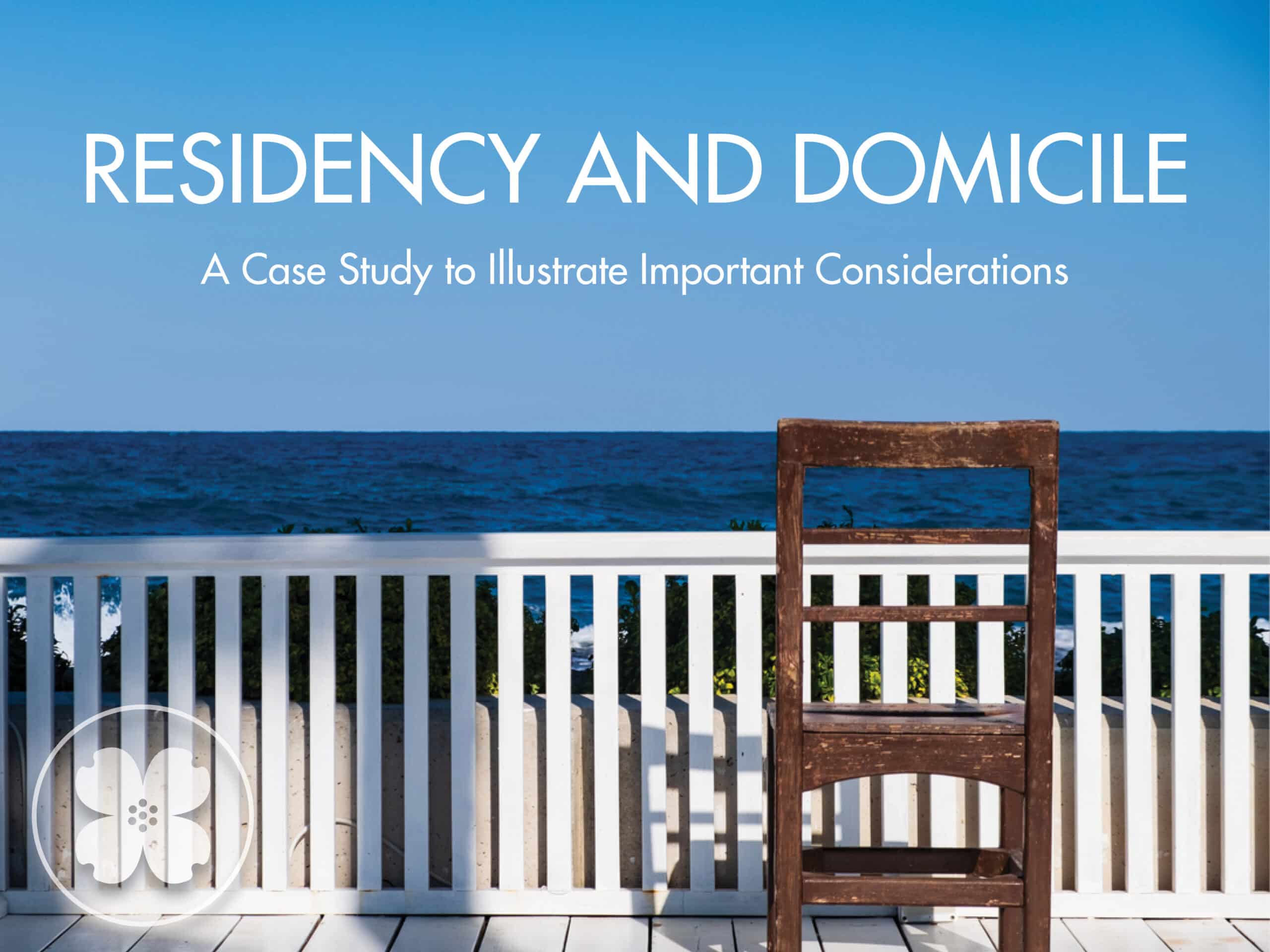Many people dream of having a place family can gather for vacation or a second home to spend winters once retired. Before making that purchase, there may be tax implications to consider.

Residency and domicile are words that are often used interchangeably. For many people, there is no distinction between the two. However, the difference between the two can be significant for others, especially for tax purposes. The case study that follows was created to illustrate a common occurrence for many people.
Tom Taxpayer was born and raised in a St. Louis suburb. He has lived and worked in Missouri his entire life. His family’s current home is just a few short miles from the home in which he grew up. Some years ago, Tom and his family began spending time at the Emerald Coast beaches of Florida, near Destin. With their children grown and out of the house, Tom and his wife have been exploring the idea of spending more time in Florida each year. Tom is aware that there may be some tax benefits from spending more time at the beach. However, he is uncertain as to how his residency and his domicile are considered.
A person’s residence is defined as the location in which they are currently living.
For Tom Taxpayer, his residence is clearly in Missouri. However, a person can have more than one residence. Tom Taxpayer’s residence could also be defined as Florida during the time he is staying there.
A person can only have one domicile.
Determining a person’s domicile is a more complicated question of fact. The idea of domicile includes intent based on extrinsic evidence of that intent. The burden of proof for determining domicile falls on the person alleging it. Should Tom Taxpayer wish to establish Florida as his domicile, he must undertake certain actions that will prove his intention to do the same. For tax purposes especially – given that Florida has no state income tax versus Missouri’s roughly 5% tax rate — it would be wise for Tom to consider his Florida home as his primary home and spend considerable time there. This concept is often referred to as the “six months and a day rule” or “the 183-day rule.” Additionally, while in Florida, he should actively participate in social clubs, religious organizations, and the like. Transacting as much business as possible in Florida would also help prove his intention to make Florida his domicile. In addition to these subjective actions, he should also undertake objective steps to prove his domicile.
Some of these would include (but not be limited to):
- Registering to vote in Florida
- Obtaining a Florida driver’s license
- Using the Florida address for tax returns, bank and investment account statements, and other official correspondence
- Titling his automobiles in Florida
- Purposefully presenting himself as a Florida domiciliary by notifying interested parties, including his advisors, employers, taxing authorities, and family and friends.
Further, some states (including Florida) require residents to file a Declaration of Domicile with the local Clerk of Court to overtly prove one’s intent to change domicile. Tom Taxpayer should take this action as soon as he wishes to claim Florida as his domicile. This declaration would also be crucial in determining whether Tom could take advantage of certain Florida advantages, such as the homestead exemption.
Interestingly, from a state tax perspective, income is generally allocated to the state in which it is either earned (for wages and other types of “earned” income), or to your state of domicile for income items such as retirement payments (IRAs, employer plans, pensions) and investment income (interest, dividends, capital gains). Rental real estate is allocated to the state in which the property is located. The allocation of income to your state of domicile plays a critical role in tax planning and should be carefully examined and discussed with your tax advisor.
While residency and domicile can often be interchangeable, they can also differ in some important ways. Consulting with knowledgeable, trusted advisors when contemplating a move to a different state would be a wise consideration that could have a significant financial impact.


